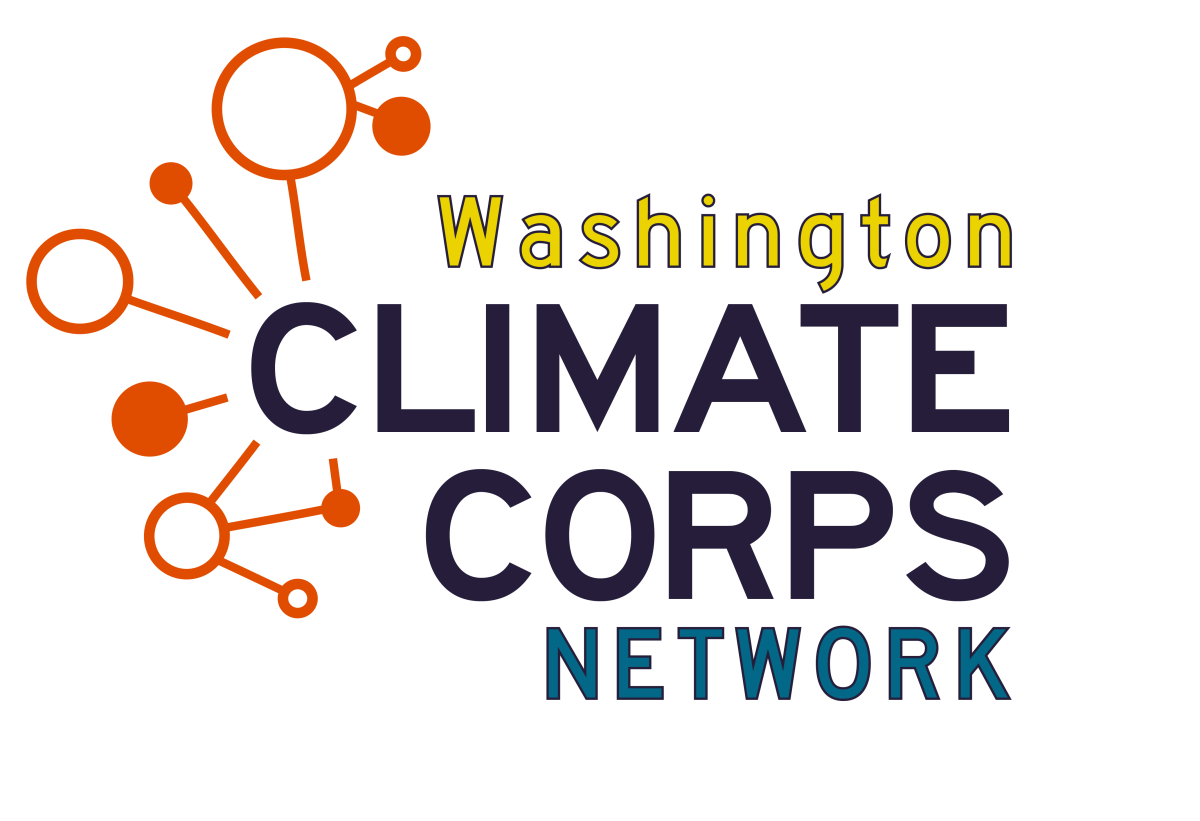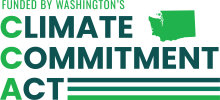Washington Climate Corps Network
The Washington Climate Corps Network, WCCN, is a network of organizations, young adults, veterans and professionals working together to build a climate resilient Washington. Serve Washington coordinates this network to conduct service projects building climate resilient communities, economies and ecosystems. Serve Washington prioritizes projects with overburdened communities facing disproportionate environmental harms from climate change.

The WCCN is looking for eligible organizations, industries, professionals, training partners, and professional associations to join the network!
The WCCN has up to $2.3 million in grant funds available for the 2025-2027 fiscal biennium (July 1, 2025 – June 30, 2027).
Start the process to join WCCN:
1. Review 2025-2027 WCCN grant materials. The following resources will help you gather what you need to prepare and apply for a WCCN grant.
- Applicant Toolkit [PDF]
- Application Preview [DOC]
- Budget Worksheet [XLS]
- WCCN Grant Webinar recording on YouTube
2. Submit a Letter of Intent
Your letter of intent should give an overview of your project and demonstrate how it aligns with the WCCN goals detailed in the grant toolkit. WCCN staff will review your letter of intent within two business days.
3. Submit your application
If we determine your project is eligible and aligns with WCCN goals, we will invite you to apply for a WCCN grant.
Please note: Only those whose letters of intent demonstrate eligiblity and alignment with WCCN goals will receive an invitation.
*On April 27, 2025, the WA State Legislature approved a funding bill that includes the FY26-27 budget for the WCCN. Governor Ferguson has 20 days (not counting Sundays) to sign the bill into law, which has not yet occurred. Therefore, the WCCN budget is not yet official, and the numbers presented are merely a projection based on the legislature’s funding decision. It is possible that this will change.
The WCCN held a webinar on May 14, 2025 for attendees to learn about the grant program, WCCN's funding priorities for the biennium and the process for receiving a grant award.
View the webinar recording on YouTube.
Serve WA administers grant funds for local organizations, municipalities, and schools to implement climate service projects with young adults, veterans, and vulnerable populations. These projects address local climate needs while building the skills, education, and resources for careers in the green and blue economies of the future. Serve Washington also coordinates a service-learning program with grantees and partner agencies to achieve Washington state’s climate resilience goals.
2023-24 HB 1176, signed into law by Governor Inslee on May 3, 2023, established the following goals for WCCN:
- Increase participation in addressing climate challenges in overburdened communities.
- Expand the diversity, awareness, and accessibility of climate service opportunities in Washington.
- Create a service-learning program for funded network partners and their members.
- Increase awareness of and access to clean energy and climate-related career opportunities and networks.
We encourage you to propose a project that addresses the effects of climate change in your community!
We are interested in new and creative approaches to problems that your community supports! If you have an established service project or want to discuss ideas, we want to hear from you!
Some examples of service projects include, but are not limited to:
Energy efficiency upgrades:
- Retrofitting low-income community buildings with energy-efficient appliances and insulation to reduce carbon emissions and lower energy costs.
Climate career training:
- Providing training programs for careers in clean energy, carbon capture, and environmental restoration.
Drought-resilient agriculture projects:
- Implementing drip irrigation systems and rainwater harvesting techniques to conserve water in agricultural practices.
- Training farmers in sustainable water management.
Kelp forest restoration for blue carbon:
- Replanting and protecting kelp forests to sequester carbon, support marine biodiversity, and enhance coastal resilience.
Installing energy microgrids:
- Developing small-scale energy projects in coastal or rural areas to provide renewable energy to off-grid communities.
We are looking for eligible organizations, industries, professionals, training partners and professional associations to join the WCCN!
Once the Washington state’s 2025-27 biennium budget is enacted, we will invite your letters of interest to join the grant program.
Subscribe to our newsletter to receive updates!
Stay updated on WCCN news!
Subscribe to email updates to receive notifications about funding opportunites, trainings, service position recruitments and other announcements about the WCCN. After entering your email, make sure the "Serve Washington: Washngton Climate Netowrk" box is checked.
Questions?
Email WCCN@OFM.WA.GOV
Learn about how the WCCN was formed! Read our WCCN fact sheet [PDF].
The Washington Climate Corps Network is supported with funding from Washington's Climate Commitment Act. The CCA supports Washington's climate action efforts by putting cap-and-invest dollars to work reducing climate pollution, creating jobs, and improving public health. Information about the CCA is available at www.climate.wa.gov.




